In recent years, we have seen an impressive increase in new fintech projects. It is estimated that the value of the entire fintech market will reach an astronomical sum of USD 266.9 billion by 2027. The solutions created by fintechs are revolutionizing the way of looking at finance, creating needs in line with the direction of technology development. However, building a financial startup requires a lot of cash. Fortunately, the market currently offers a fairly wide range of funding options for newly established fintechs. On the one hand, external investors are increasingly looking for investments in financial innovations, and on the other hand, project development can be based on the form of the so-called ‘mixed funding’. There are quite a few options, depending on the business model, business goals, and type of product or service offered. We have collected the most interesting funding opportunities for fintech start-ups.
I. External investors
Finding an investor from outside the company is the first way to fund a fintech. In addition to a cash contribution, the investors often also help a given company enter the business world, and gain contacts and experience. Of course, someone who invests his money in fintech is not a passive observer, but a partner with partial control and influence over the company’s operations. Good cooperation with an external investor is the key to success. There are many ways to attract an external investor, including:
1) Venture capital – a type of external investment for companies from the small and medium-sized enterprise sector, in which the investor (usually a large enterprise) makes a cash contribution to the company by buying its shares. Such an entity becomes a co-owner of the fintech, supports the project financially, but also manages the work and interferes in the decisions made. Thanks to the contract concluded for a strictly defined period, the originator is not afraid that they will lose money overnight.
Among European VCs interested in investing in fintech projects, the following organizations should be considered:
![]() Global Founders Capital based in Berlin,
Global Founders Capital based in Berlin,
![]() F10 based in Zurich,
F10 based in Zurich,
![]() Speed Invest based in Vienna,
Speed Invest based in Vienna,
![]() GSR based in London,
GSR based in London,
![]() SoftBank Vision Fund based in London,
SoftBank Vision Fund based in London,
![]() Picus Capital based in Munich,
Picus Capital based in Munich,
![]() Anthemis Group based in London,
Anthemis Group based in London,
![]() and Eurazeo based in Paris.
and Eurazeo based in Paris.
2) Business angels – in the case of this method of investing, we are dealing only with investments from our own funds. Business Angels are private investors who are willing to look for innovative companies where they hope to get profits from shares for help in the form of a cash contribution.
The 10 most active fintech investment angels from 2021 include:
– Chris Adelsbach (UK)
Adelsbach’s multiple pre-seed and seed fintech investments last year were spread across Europe and included Berlin’s re:cap, London’s Pixie, twig and BondAval, Madrid’s Getlife and Riga’s Zelf.
– Charlie Delingpole (UK)
Among his fintech investments in 2021 were Hungary’s Seon, Warsaw’s Ramp, London’s BondAval and Plum, and Amsterdam’s Sprinque.
– Perry Blacher (UK)
In 2021, his thirteen European fintech investments included Onfido cofounder Eamon Jubbawy’s new SaaS fintech Sequence, Bulgarian b2b expense management fintech Payhawk, Berlin’s revenue-based financing startup re:cap, and Warsaw’s crypto payments startup Ramp.
– Michael Pennington
His 2021 fintech investments included creator economy financing startup Peblo, revenue-based financing startup Vitt, credit card startup Yonder and Carmoola car insurance.
– Matt Robinson
In 2021, he invested in ten European fintechs, which also included Yonder, compliance fintech Argus, German insurtech Feather and Georgian payments startup Payze.
3) Investment funds – a form of funding that consists in the collective investment of funds paid in by fund participants. Then, these funds are invested in the company’s securities, and the profits come mainly from the change in their value.
The largest investment funds in the world, focused on investments in fintech projects, include:
![]() Tiger Global (with 70 deals in the first half of 2022),
Tiger Global (with 70 deals in the first half of 2022),
![]() Y Combinator (62 deals)
Y Combinator (62 deals)
![]() Coinbase Ventures (51 deals)
Coinbase Ventures (51 deals)
![]() Sequoia (50 deals)
Sequoia (50 deals)
![]() Accel (41 deals)
Accel (41 deals)
3) Issuance of bonds – is an alternative solution to seeking sources of funding from external investors. This method mainly applies to entities that are looking for significant cash. It consists in the issuance of securities (bonds) of a certain value. To put it simply, it is a kind of loan in which you undertake to provide the bond owner (investor) with a specific benefit, which may be monetary or non-monetary. In the case of the first variant, the investor has the right to get back the borrowed amount with interest. On the other hand, the non-monetary dimension is the possibility of obtaining certain rights, e.g. to a share in the company’s future profits.
As a company that has been actively supporting the activities of fintechs for years,
we notice that their biggest challenge is finding a solid source of funding for the project created.
Piotr Hanusiak- CEO INCAT
III. Foundations and hubs for fintechs
Currently, the foundations and hubs that create an ecosystem supporting the development of fintech are becoming more and more popular. As part of cooperation with such an entity, fintech can count not only on project funding, but also on technological and business support. The main goal of such foundations is to connect people and organizations across the entire financial sector ecosystem, giving fintechs access to knowledge, experience, talents and investors. It is not uncommon to find economists, lawyers or IT specialists among the partners of such foundations. Business support at the initial stage of fintech development is also a significant advantage in terms of savings, because you do not need to invest in accounting or legal support, and it is known that the early phase of the project usually requires caution in spending money.
There are foundations supporting fintechs in almost every European market and it is worth knowing about their availability. For example, in one of the most dynamic fintech markets in Europe – i.e. in Poland, such foundations include among others Fintech Poland Foundation and Start-up Poland.
IV. Crowdfunding
The crowdfunding is a fairly new way to raise funds, which is currently gaining more and more popularity. In the context of financial solutions, this may not be an obvious idea, but it all depends on the type of the service offered. If the fintech offer is addressed to the B2C market and at the same time meets the conditions of an innovative and attractive solution, this form of at least partial funding can certainly be considered. The crowdfunding consists in presenting the project to a wider community through an online platform. The people interested in the project can make small, one-off payments for its implementation through thsi platform. In return for their financial contribution, numerous “investors” receive remuneration in the form of shares in future profits from the project, or they become co-owners of the project. This type of benefit exchange is a form of investment. It also happens that the remuneration for the investor is offered in the form of a finished product (pre-sale) for the implementation of which a collection is conducted.
Funding the project in this way opens up the possibility of reaching a wide audience thanks to the popularity of such platforms. On the other hand, a person looking for funds receives a quick message from the target group about whether the project is interesting and innovative enough to enter the market.
The largest crowdfunding services in Europe are:
![]() WhyDonate
WhyDonate
![]() Funding Circle
Funding Circle
![]() Crowdcube
Crowdcube
![]() Boomerang
Boomerang
![]() Ulule
Ulule
![]() Companisto
Companisto
![]() Seedrs
Seedrs
![]() Betterplace.org
Betterplace.org
V. Support from EU programs
The European Union offers financial assistance to start-ups under innovation funding programes. To a large extent, this is non-repayable funding, of course, after meeting a number of conditions set out in the funding regulations.
VI. Cooperation with banks
This is not about reaching for a loan – not at all. Especially since it is easier to obtain a loan for entities that are already operating in the market and have the creditworthiness. An alternative form of support is simply starting cooperation with one of the banks that offer innovation programs for fintechs. As part of such an exchange, fintechs can count on financial and legislative support, and banks implement their assumptions related to the development of innovation in the banking sector.
The most interesting projects in this area include:
![]() Start path created by Mastercard operator,
Start path created by Mastercard operator,
![]() Accelpoint co-created by Santander Cosumer Bank SA.,
Accelpoint co-created by Santander Cosumer Bank SA.,
![]() Let’s Fintech, originated by Bank PKO BP – the largest bank in the region of Central and Eastern Europe (CEE).
Let’s Fintech, originated by Bank PKO BP – the largest bank in the region of Central and Eastern Europe (CEE).
***
And if you are considering launching your financial project and need a core system that will be the main engine of your business, let us know. We have a solution for you.

